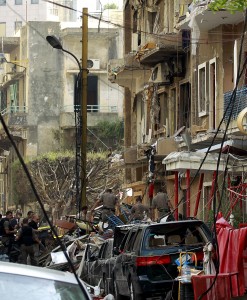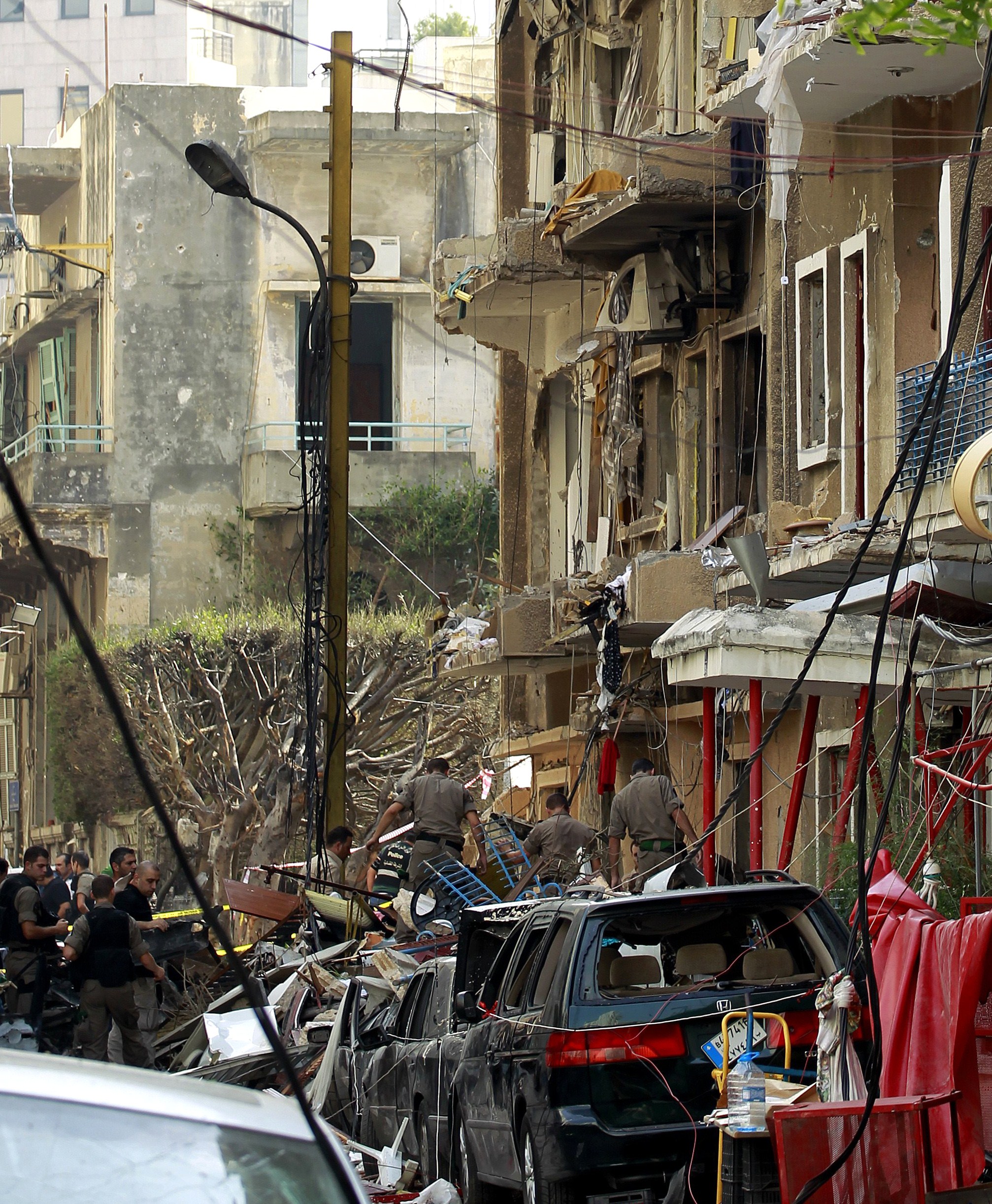
Beirut (AFP) – Lebanon’s cabinet met in emergency session on Saturday as scattered protests erupted around the country, a day after a top security official was killed in a car bombing blamed on Syria.
Saturday was declared a day of mourning and Internal Security Forces (ISF) intelligence chief General Wissam al-Hassan was to be buried on Sunday alongside former Premier Rafiq Hariri, murdered in a car bombing seven years ago.
The anti-Syrian opposition, led by Hariri’s son Saad, called for a massive turnout for the funeral, which will be held after Muslim prayers at the Al-Amine Mosque in the capital’s centre.
Hassan, a top Lebanese security official killed Friday in a Beirut car bombing, suspected the regime in neighbouring Syria of murdering his mentor, former Prime Minister Rafiq Hariri.
The grey-moustached general, 47, a Sunni Muslim, had sent his wife and children to Paris because he “knew he was a target,” said a Lebanese opposition leader hostile to the regime of Syrian President Bashar al-Assad.
As intelligence chief of Lebanon’s police Hassan dismantled Islamist networks in his country and shut down Israeli-linked spy operations.
But his master stroke was the August 9 arrest, in which ISF played a central role, of former Lebanese information minister Michel Samaha, suspected of planning attacks in Lebanon’s north at the behest of Syrian intelligence official Ali Mamlouk.
Hassan had already pointed the finger at Damascus, not only for the Hariri assassination in 2005 but also for a series of killings over the following three years of Lebanese figures opposed to Syria.
His ISF were deeply involved in seeking the arrest of those responsible.
The bombing drew condemnation from abroad, with US Secretary of State Hillary Clinton calling it a “dangerous sign that there are those who continue to seek to undermine Lebanon’s stability.”
Protesters blocked some roads in Beirut, Sidon in the south, Tripoli in the north and the Bekaa Valley in the east. In some cases, they burned tyres.
On Friday, official figures put the death toll at eight, but the ISF and the Red Cross both lowered the figure on Saturday.
Red Cross spokesman Ayad Mounzer told AFP “this is not the final toll, as we still need to see what happens to the critically wounded.”
The ISF put the number hurt at 80 in a blast that ripped through a busy square in the district where Hassan lived, and the Red Cross at 110.
The site, a mass of rubble and twisted metal, remained blocked off and investigators were sifting through the damage.
The cabinet had gone into emergency session mid-morning to discuss the fallout from the bombing, after key opposition groups called on the government to step down.
“The government must leave and we call on Prime Minister Najib Mikati to resign immediately,” Ahmad Hariri, secretary general of the anti-Assad Future movement, said on Friday night.
Hassan, 47, was close to Saad Hariri, himself a former premier who leads the major opposition March 14 coalition of which Future is a party.
In keeping with a complex power-sharing arrangement in multi-confessional Lebanon, the premier is always a Sunni Muslim. But parliament and the government are dominated by the powerful Shiite movement Hezbollah, an Assad ally.
Mikati’s office said the “size and tragic consequences of this heinous crime is a source of severe pain and sadness to the prime minister.”
Soon after the bombing, Syria condemned what it called a “terrorist, cowardly” attack.
But both Saad Hariri and Walid Jumblatt, the influential Druze leader, accused the Syrian president of being behind the bombing.
“We accuse Bashar al-Assad of the assassination of Wissam al-Hassan, the guarantor of the security of the Lebanese,” said Hariri.


